Find Help
More Items From Ergsy search
-

Short Films About Mental Health - Personality Disorders
Relevance: 100%
-

Short Films About Mental Health - Trauma PTSD
Relevance: 89%
-

Short Films About Mental Health - Anxiety
Relevance: 74%
-
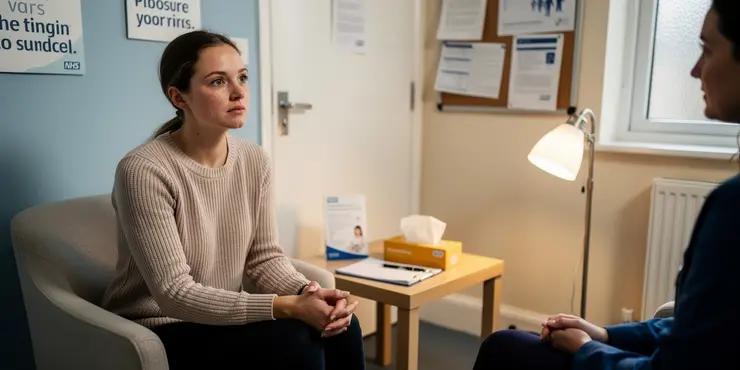
How do eating disorders affect mental health?
Relevance: 50%
-
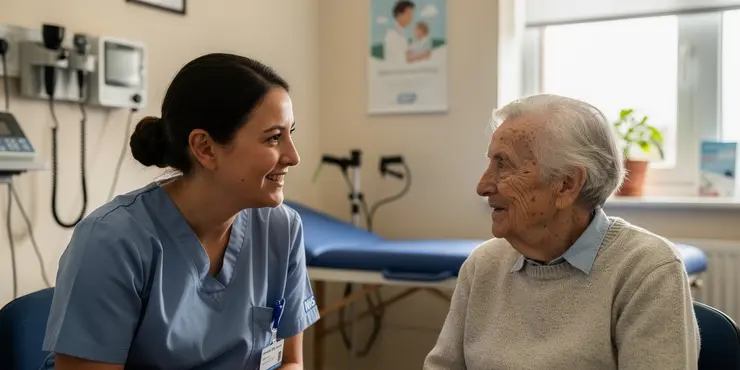
Colten Care values - montage of all 5 short films
Relevance: 46%
-
Can eating disorders occur with other mental health conditions?
Relevance: 44%
-
How does binge drinking affect mental health?
Relevance: 37%
-
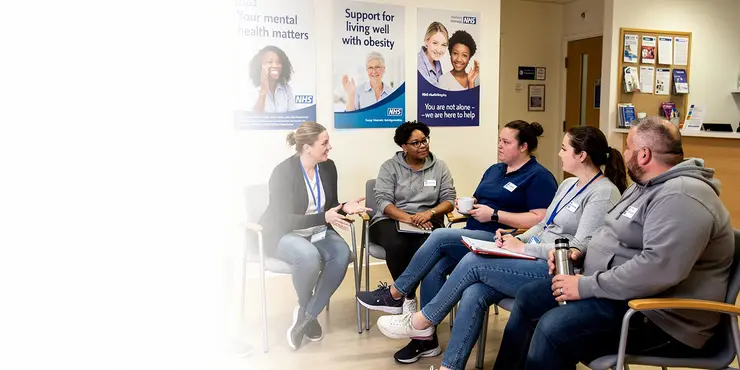
What is the impact of obesity on mental health?
Relevance: 36%
-

Understanding Mental Health in Children
Relevance: 36%
-
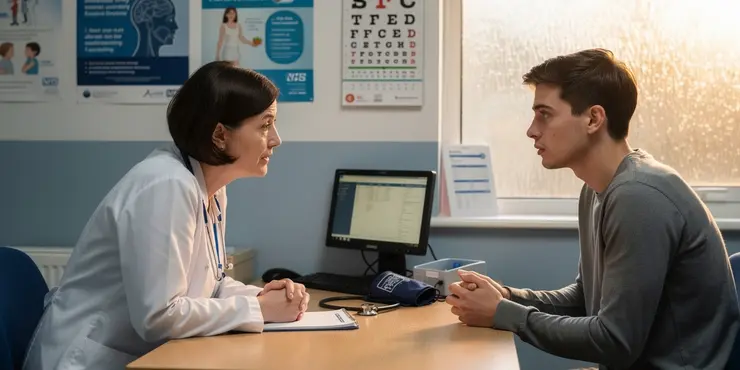
BSL - Diagnosis of panic disorder
Relevance: 34%
-
How does sugar impact mental health?
Relevance: 34%
-
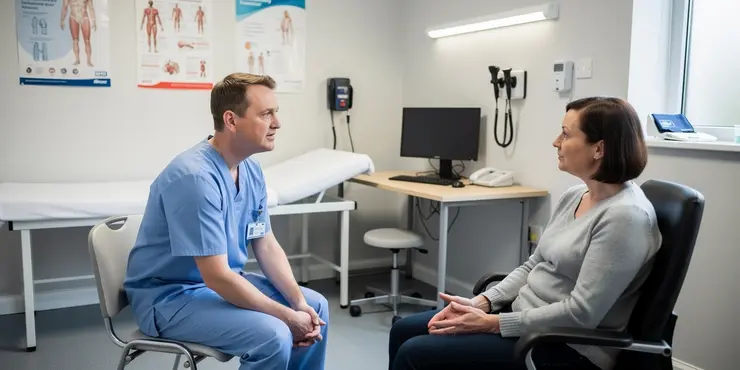
BSL - Introduction to panic disorder
Relevance: 34%
-

Can concussions lead to mental health issues?
Relevance: 33%
-
What is an eating disorder?
Relevance: 33%
-

How does the loneliness epidemic impact mental health?
Relevance: 33%
-
What is an Eating Disorder?
Relevance: 32%
-
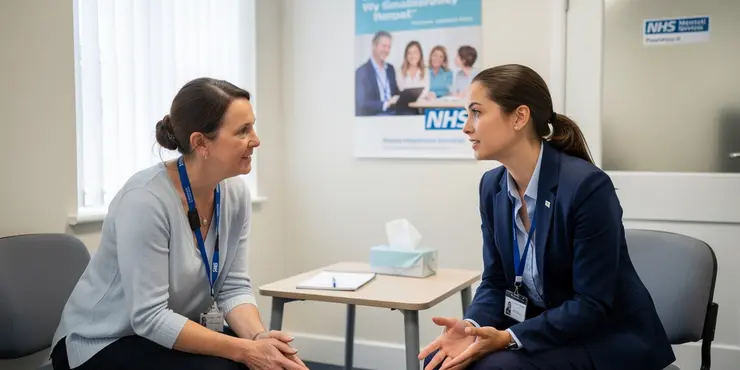
Mental Health Support Services in the UK
Relevance: 32%
-

Can gut health affect mental health as one ages?
Relevance: 32%
-

Mental Health Support Resources in the UK
Relevance: 32%
-

What is the impact of eating disorders on physical health?
Relevance: 32%
-

Mental Health Support Resources for Families
Relevance: 32%
-
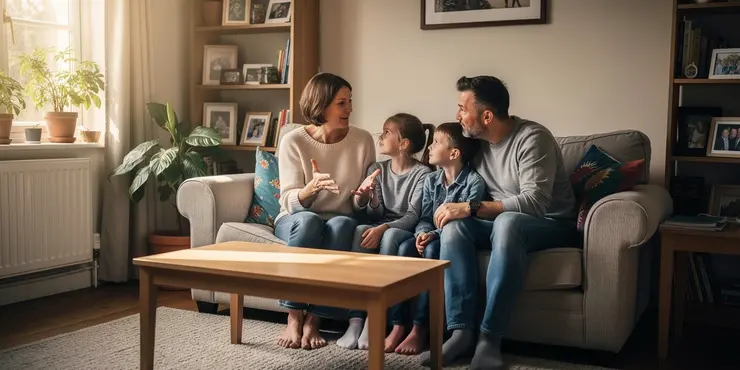
Mental Health Resources for Families
Relevance: 31%
-

Current Challenges in Youth Mental Health Services
Relevance: 31%
-
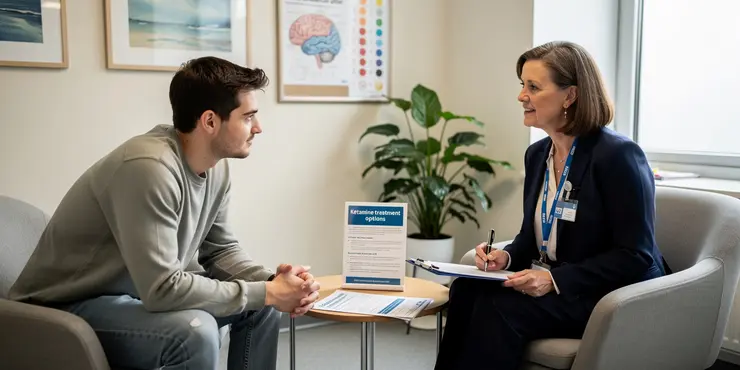
Can ketamine be prescribed for mental health conditions?
Relevance: 31%
-

Accessing Mental Health Support Resources in the UK
Relevance: 31%
-
Can cortisol levels impact mood and mental health?
Relevance: 31%
-
How are eating disorders diagnosed?
Relevance: 31%
-
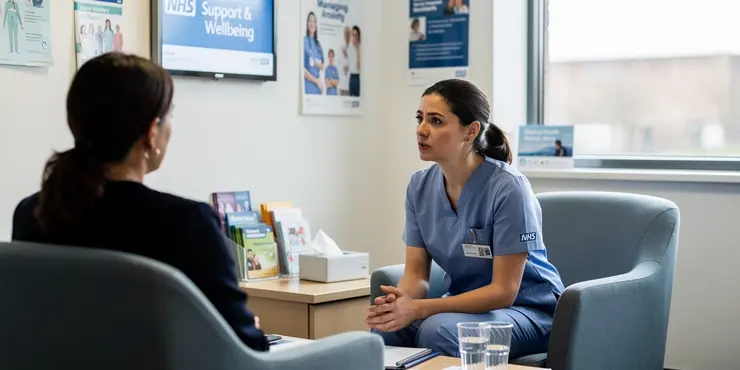
BSL - Symptoms of panic disorder
Relevance: 30%
-

Tackling Youth Mental Health: Community Initiatives and Solutions
Relevance: 30%
-

Advancements in Mental Health Resources for Families
Relevance: 30%
-

Can relationship problems be resolved to improve mental health?
Relevance: 30%
-

Navigating Mental Health Services for Children and Adolescents
Relevance: 30%
-

BSL - Causes of panic disorder
Relevance: 30%
-

NHS Unveils Revolutionary Mental Health Support Initiative
Relevance: 29%
-

Mental Health: Laura's Story | NHS
Relevance: 29%
-

New Mental Health Strategy Launched to Address Youth Anxiety Epidemic
Relevance: 29%
-

How does walking to work impact mental health?
Relevance: 29%
-
Mental Health Support for Families: Resources and Guidance
Relevance: 29%
-

Mental Health Support for Families: Resources and Strategies
Relevance: 29%
-

Mental Health Support for Families: Resources and Helplines
Relevance: 29%
Short Films About Mental Health - Personality Disorders
Introduction to Personality Disorders
Personality disorders are complex mental health conditions that impact an individual's thoughts, feelings, and behaviours. These disorders can significantly affect one’s ability to maintain relationships, work effectively, and navigate daily life. Short films serve as an accessible and impactful medium to raise awareness and foster understanding about these conditions.
The Role of Short Films in Mental Health Awareness
In the United Kingdom, short films have become a powerful tool for mental health advocacy. They provide a creative platform that can vividly depict the nuances of living with personality disorders. These films often tell personal stories that resonate with viewers, breaking down stigma and encouraging empathy. By showcasing the realities of these conditions, short films can also educate the public on the importance of seeking and providing support for those affected.
Highlighting Specific Personality Disorders
Short films can explore a range of personality disorders, each with unique characteristics and challenges. For example:
- Borderline Personality Disorder (BPD): Films can depict the intense emotional dysregulation, fear of abandonment, and turbulent relationships experienced by individuals with BPD.
- Narcissistic Personality Disorder (NPD): These stories might delve into the complexity of inflated self-importance and lack of empathy that define NPD, shedding light on both the internal and external struggles involved.
- Obsessive-Compulsive Personality Disorder (OCPD): Films focusing on OCPD can illustrate the challenges of perfectionism, control, and rigidity that often dominate the lives of those with the disorder.
Examples of Impactful Short Films
Several notable short films have made a significant impact in the UK. For instance:
- “Out of the Blue”: This film portrays the life of a young woman navigating the challenges of BPD, highlighting her journey towards self-acceptance and resilience.
- “Black Dog”: Focused on NPD, this film offers a raw look at the internal struggles of narcissism and its effect on familial relationships.
- “Control”: A gripping portrayal of OCPD, capturing both the internal conflict and the external impacts of the disorder.
Conclusion
Short films are a valuable resource in promoting mental health awareness, particularly concerning personality disorders. By bringing these conditions to life through compelling narratives, films can foster a greater understanding and empathy within society. In doing so, they serve as a crucial step toward dismantling stigma and supporting mental health within the UK.
Short Films About Mental Health - Personality Disorders
Introduction to Personality Disorders
Personality disorders are problems with mental health. They affect how a person thinks, feels, and acts. This can make it hard to have friends, work, or do everyday things. Short films can help people learn about these disorders in a simple way.
The Role of Short Films in Mental Health Awareness
In the UK, short films help teach people about mental health. They show what life is like with personality disorders through stories. These films can help people understand and care more about those with these disorders. They also show why it is important to help people who are affected.
Highlighting Specific Personality Disorders
These films can show different types of personality disorders, each with its own challenges:
- Borderline Personality Disorder (BPD): Films can show how people with BPD have strong emotions, fear of being left, and difficult relationships.
- Narcissistic Personality Disorder (NPD): Stories might show how people with NPD feel very important and have trouble caring about others' feelings.
- Obsessive-Compulsive Personality Disorder (OCPD): Films about OCPD can show how people want things perfect and under control all the time.
Examples of Impactful Short Films
Some short films in the UK have made a big difference. For example:
- “Out of the Blue”: This movie tells the story of a young woman with BPD and how she learns to accept herself.
- “Black Dog”: This film is about NPD and shows how it affects family relationships.
- “Control”: This film is about OCPD and shows the struggles of wanting everything to be perfect.
Conclusion
Short films are great for teaching about mental health and personality disorders. They use stories to help people understand and care more. This is important for stopping stigma and helping mental health in the UK.
Frequently Asked Questions
What are personality disorders?
Personality disorders are mental health conditions that affect the way a person thinks, behaves, and relates to others. People with personality disorders typically have patterns of experience and behaviour that diverge significantly from the cultural norm.
How common are personality disorders in the UK?
It's estimated that around one in 20 people in the UK have a personality disorder. However, the prevalence can vary depending on the specific type of personality disorder.
What are the main types of personality disorders?
Personality disorders are often grouped into three clusters: Cluster A (odd or eccentric disorders, such as paranoid personality disorder), Cluster B (dramatic, emotional, or erratic disorders, such as borderline personality disorder), and Cluster C (anxious or fearful disorders, such as avoidant personality disorder).
How are personality disorders diagnosed?
Diagnosis of personality disorders typically involves a thorough psychological evaluation. This may include questionnaires, structured interviews, and assessments of the individual's history and symptoms.
What causes personality disorders?
The exact cause of personality disorders is not fully understood. However, a combination of genetic, environmental, and social factors is believed to contribute to their development. Early childhood experiences often play a significant role.
Can personality disorders be treated?
Yes, personality disorders can be treated. Treatment typically involves psychotherapy, but medication may also be prescribed to manage specific symptoms. The treatment approach will vary depending on the type and severity of the disorder.
What is the role of psychotherapy in treating personality disorders?
Psychotherapy, or talk therapy, is a key component of treating personality disorders. Types of therapy that may be used include cognitive-behavioural therapy (CBT), dialectical behaviour therapy (DBT), and psychodynamic therapy. The goal is to help individuals understand their thoughts, behaviours, and feelings to make positive changes.
Are medications used to treat personality disorders?
While there are no medications specifically approved to treat personality disorders, certain medications can be used to address symptoms such as anxiety, depression, or mood swings. These may include antidepressants, antipsychotics, or mood stabilizers.
How can I support a friend or family member with a personality disorder?
Supporting someone with a personality disorder involves being patient, understanding, and non-judgmental. Encourage them to seek professional help, offer to attend appointments with them if appropriate, and educate yourself about their condition.
Is it possible to prevent personality disorders?
While it may not be possible to prevent personality disorders entirely, early intervention and treatment for childhood trauma or other mental health issues can potentially reduce the risk of developing a personality disorder later in life.
What is the outlook for someone with a personality disorder?
The outlook varies depending on the type and severity of the personality disorder, as well as the individual's willingness to engage in treatment. With appropriate therapy and support, many people can manage their symptoms and lead fulfilling lives.
How does borderline personality disorder differ from bipolar disorder?
While both borderline personality disorder (BPD) and bipolar disorder can involve mood swings, they are distinct conditions. BPD typically features rapid mood changes, intense relationships, and a fear of abandonment. Bipolar disorder involves longer-lasting mood episodes that include periods of mania and depression.
Are there any self-help strategies for managing personality disorders?
Yes, self-help strategies such as maintaining a routine, practising mindfulness or relaxation techniques, keeping a mood diary, and engaging in regular physical activity can be beneficial. However, these should complement, not replace, professional treatment.
Can children be diagnosed with personality disorders?
Personality disorders are usually not diagnosed in children because their personalities are still developing. However, traits and behaviours associated with personality disorders can be observed in older adolescents.
What resources are available in the UK for people with personality disorders?
There are numerous resources available, including the NHS, which offers mental health services such as therapy and medication. Charities and organisations like Mind, Rethink Mental Illness, and the Personality Disorders Service also provide support, information, and advocacy.
What are personality disorders?
Personality disorders are a kind of mental health problem. They can make it hard for people to get along with others. These problems affect how a person thinks and feels.
Here is a simple way to understand it:
- A person with a personality disorder may have trouble in friendships and relationships.
- They might find it difficult to understand how other people feel.
- These problems can make everyday life harder for them.
If someone needs help, talking to a doctor or a mental health expert can be good. They can offer support and advice.
Personality disorders are problems with mental health. They change how a person thinks, acts, and gets along with other people. People with personality disorders usually think and act very differently from most people around them.
If you want extra help reading, you can:
- Use a reading ruler to follow the lines better.
- Try reading aloud to hear the words.
- Ask someone to read with you or explain the hard parts.
How many people have personality disorders in the UK?
Lots of people in the UK have personality disorders.
Here are some tips to help understand better:
- Use pictures and charts to show numbers.
- Listen to the information on an audio player.
- Talk about it with someone you trust.
- Read it out loud slowly.
In the UK, about 1 out of every 20 people has a personality disorder. Different types of personality disorders can be more common or less common.
Tip: Using tools like audiobooks or reading apps can help make reading easier. Try reading with a friend or family member too!
What are the main types of personality disorders?
Personality disorders are problems that can make it hard for people to get along with others. Here are the main types:
- Type 1: Cluster A - People might seem odd or not want to be around others.
- Type 2: Cluster B - People might have strong emotions and find it hard to control them.
- Type 3: Cluster C - People might be very scared or worried.
Helpful tools: Talking to a doctor, getting therapy, or looking at support websites can help.
There are three groups of personality disorders. These groups help us understand and talk about them easier.
The first group is called Cluster A. These disorders are a bit strange or different. An example is paranoid personality disorder, where people might think others are out to get them.
The second group is called Cluster B. These disorders are dramatic or full of big feelings. An example is borderline personality disorder, where people can feel a lot of emotions very quickly.
The last group is Cluster C. These disorders make people feel nervous or frightened. An example is avoidant personality disorder, where people might be very shy or afraid of what others think of them.
If you're finding this hard to understand, you can ask someone to explain it to you, or use tools like text-to-speech, which can read the words out loud for you. You can also try breaking the text into smaller parts and read slowly. Take your time!
How do doctors find out if someone has a personality disorder?
Doctors talk to the person and ask questions. They listen carefully to what the person says about their feelings and thoughts.
Doctors might also ask the person's family or friends to share what they have noticed.
Sometimes, doctors use special checklists to help them decide if someone has a personality disorder.
Drawing pictures or using simple charts can help make things clearer when talking about feelings or behaviors.
Finding out if someone has a personality disorder usually needs a careful check-up by a psychologist. This might include filling out question papers, talking to an expert, and looking at the person's past and how they feel or act now.
What makes personality problems happen?
We do not know exactly what causes personality disorders. But we think they happen because of a mix of different things. These things include genes, where you live, and how you grow up with other people. What happens to you as a child is very important.
Can personality disorders be treated?
Yes, personality disorders can be treated.
Doctors can help people with therapy. Therapy is talking to someone who listens and helps.
Medicine can also help some people feel better.
Family and friends can be very supportive. They can listen and encourage.
It is important to ask for help from a doctor or therapist.
Yes, people can get help for personality disorders. Talking therapy is a common way to help, and doctors might give medicine to help with certain problems. The way doctors help will depend on the type of disorder and how serious it is.
If reading is hard, you can use tools that read text out loud or change the text size. Also, drawing or talking out ideas can help understand and remember things better.
How does talking therapy help people with personality problems?
Talking therapy, also called psychotherapy, helps people learn about their feelings and actions. It can help people with personality problems feel better and get along with others. Talking therapy gives you a safe space to talk about your thoughts and feelings. There are different types of talking therapy, like CBT (Cognitive Behavioral Therapy) or DBT (Dialectical Behavior Therapy). These therapies teach skills to manage feelings and solve problems. It’s important to talk to a therapist who listens and cares.
If reading is hard, you can ask someone to read with you or try listening to audiobooks. Using a ruler or finger to follow along can also help. Remember, taking breaks and asking for help is okay!
Talking with a therapist can help people with personality disorders. This is called talk therapy. There are different kinds of talk therapy. Some types are cognitive-behavioural therapy (CBT), dialectical behaviour therapy (DBT), and psychodynamic therapy. The goal of talk therapy is to help people understand their thoughts, feelings, and actions so they can make good changes.
Do medicines help with personality disorders?
Sometimes, doctors use medicines to help people who have personality disorders.
If you or someone you know has a personality disorder, it can be helpful to talk to a doctor. They can explain which medicines might help and what other things might be good to try.
It can also help to have a family member or friend support you when you talk to the doctor.
There are no special medicines just for personality disorders. But some medicines can help with feeling worried, sad, or moody. These medicines might be called antidepressants, antipsychotics, or mood stabilizers.
How can I help a friend or family who has a personality disorder?
Helping someone with a personality disorder means being patient, kind, and not judging them. Tell them to talk to a doctor or therapist. You can go with them to appointments if they want. Learn about what they are going through too.
Can we stop personality disorders from happening?
We don’t know how to completely stop personality disorders. But there are things that can help.
Things that might help:
- Talking to a counselor or therapist.
- Learning new skills to handle feelings.
- Having good friends and family to support you.
It’s important to ask for help if you need it. Talking to someone you trust can be a good step.
We can't stop personality disorders from happening. But if we help kids early with their problems, we might lower the chance of them having personality disorders when they grow up.
What does the future look like for someone with a personality disorder?
A personality disorder can make life hard. But with help, things can get better. Here is what can help:
- Talking to a Therapist: A therapist can help you understand your feelings.
- Medicines: Doctors might give you medicine to help you feel better.
- Support Groups: Meeting other people with the same problems can help you feel less alone.
It is important to get care and support. With these, life can be happier and healthier.
How things turn out can be different for each person. It depends on the kind of personality disorder they have and how serious it is. It also helps if the person is ready to get help and work on getting better. With the right help and care, a lot of people can feel better and enjoy their lives.
What is the difference between borderline personality disorder and bipolar disorder?
Some people have a condition called borderline personality disorder (BPD). Others have bipolar disorder. These are two different illnesses.
BPD affects how a person feels about themselves and others. It can make emotions change quickly. People with BPD may feel very sad, angry, or worried.
Bipolar disorder also affects moods. But it usually has longer periods of feeling very happy or very sad. These changes can last for days or weeks.
If you want to learn more, it helps to talk to a doctor or therapist. They can explain these conditions and offer support.
Both BPD and bipolar disorder can make people feel happy or sad. But they are not the same.
BPD can make feelings change very fast. People with BPD may have strong feelings about other people and might worry that others will leave them.
Bipolar disorder has mood changes that last longer. People can feel very happy (mania) or very sad (depression) for a longer time.
To help understand these feelings, you can use tools like picture stories or ask a grown-up to help explain.
Can I Help Myself with Personality Disorders?
Yes, there are ways to help yourself if you have a personality disorder. Here are some ideas:
- Talk to Someone: Share your thoughts with a friend or family member.
- Write It Down: Keep a diary to write about your feelings.
- Relax: Try deep breathing or listen to calm music to feel better.
- Make a Plan: Set small goals and take one step at a time.
- Get Help: Talk to a therapist or counselor if you need more support.
You can use apps or websites to help you learn more and feel better.
Yes, there are things you can do to help yourself feel better. You can try to stick to a daily routine, practice calming exercises, write down your feelings in a mood diary, and exercise regularly. These activities can help, but they should go along with seeing a doctor or therapist.
Can doctors say if kids have personality disorders?
Sometimes, kids can have problems with how they feel and act. These are called personality disorders. But it's hard for doctors to say for sure if a child has this.
Kids are still growing and changing. So, doctors wait until children are older, like teenagers, to decide if they have a personality disorder.
If you think a child is having trouble, talking to a doctor can help. Parents and teachers can also watch and support the child.
Tools like drawing, stories, and games can help kids talk about their feelings.
Doctors usually do not say children have personality disorders. This is because children's personalities are still growing. But, in older teenagers, you can see signs and actions linked to personality disorders.
What help can people with personality disorders get in the UK?
If you live in the UK and have a personality disorder, there are ways to get help and support. A personality disorder is when your thoughts and feelings make it hard to get along with other people.
Here are some places and people who can help you:
- Doctor (GP): You can talk to your doctor about how you feel. They can help you find the right help.
- Counselor or Therapist: These are people who you can talk to. They help you understand your feelings and how to manage them.
- Support Groups: You can meet other people who feel like you do. Sharing stories can help you feel better.
- Helplines: You can call helplines to talk to someone. They listen and support you. An example is Samaritans. You can call them at 116 123 anytime.
- Charities: They give information and support. Mind and Rethink Mental Illness are two charities that help people with mental health problems.
Remember, you are not alone. People care and will help you.
Tools that might help you:
- Writing or Drawing: Use a notebook to write or draw your feelings.
- Relaxing Apps: Use apps on your phone to help you calm down. They may play calming music or guided breathing exercises.
- Mindfulness: Take a few minutes to sit quietly and breathe slowly to help feel more calm.
Ask someone you trust to help you find more support if you need it.
There is lots of help you can get. The NHS has services to help with mental health. This can include talking to someone or getting medicine. There are also charities like Mind and Rethink Mental Illness. They can give you support and information. The Personality Disorders Service can also help you.
Useful Links
This website offers general information and is not a substitute for professional advice.
Always seek guidance from qualified professionals.
If you have any medical concerns or need urgent help, contact a healthcare professional or emergency services immediately.
Some of this content was generated with AI assistance. We’ve done our best to keep it accurate, helpful, and human-friendly.
- Ergsy carfully checks the information in the videos we provide here.
- Videos shown by Youtube after a video has completed, have NOT been reviewed by ERGSY.
- To view, click the arrow in centre of video.
- Most of the videos you find here will have subtitles and/or closed captions available.
- You may need to turn these on, and choose your preferred language.
- Go to the video you'd like to watch.
- If closed captions (CC) are available, settings will be visible on the bottom right of the video player.
- To turn on Captions, click settings .
- To turn off Captions, click settings again.
More Items From Ergsy search
-

Short Films About Mental Health - Personality Disorders
Relevance: 100%
-

Short Films About Mental Health - Trauma PTSD
Relevance: 89%
-

Short Films About Mental Health - Anxiety
Relevance: 74%
-

How do eating disorders affect mental health?
Relevance: 50%
-

Colten Care values - montage of all 5 short films
Relevance: 46%
-
Can eating disorders occur with other mental health conditions?
Relevance: 44%
-
How does binge drinking affect mental health?
Relevance: 37%
-

What is the impact of obesity on mental health?
Relevance: 36%
-

Understanding Mental Health in Children
Relevance: 36%
-

BSL - Diagnosis of panic disorder
Relevance: 34%
-
How does sugar impact mental health?
Relevance: 34%
-

BSL - Introduction to panic disorder
Relevance: 34%
-

Can concussions lead to mental health issues?
Relevance: 33%
-
What is an eating disorder?
Relevance: 33%
-

How does the loneliness epidemic impact mental health?
Relevance: 33%
-
What is an Eating Disorder?
Relevance: 32%
-

Mental Health Support Services in the UK
Relevance: 32%
-

Can gut health affect mental health as one ages?
Relevance: 32%
-

Mental Health Support Resources in the UK
Relevance: 32%
-

What is the impact of eating disorders on physical health?
Relevance: 32%
-

Mental Health Support Resources for Families
Relevance: 32%
-

Mental Health Resources for Families
Relevance: 31%
-

Current Challenges in Youth Mental Health Services
Relevance: 31%
-

Can ketamine be prescribed for mental health conditions?
Relevance: 31%
-

Accessing Mental Health Support Resources in the UK
Relevance: 31%
-
Can cortisol levels impact mood and mental health?
Relevance: 31%
-
How are eating disorders diagnosed?
Relevance: 31%
-

BSL - Symptoms of panic disorder
Relevance: 30%
-

Tackling Youth Mental Health: Community Initiatives and Solutions
Relevance: 30%
-

Advancements in Mental Health Resources for Families
Relevance: 30%
-

Can relationship problems be resolved to improve mental health?
Relevance: 30%
-

Navigating Mental Health Services for Children and Adolescents
Relevance: 30%
-

BSL - Causes of panic disorder
Relevance: 30%
-

NHS Unveils Revolutionary Mental Health Support Initiative
Relevance: 29%
-

Mental Health: Laura's Story | NHS
Relevance: 29%
-

New Mental Health Strategy Launched to Address Youth Anxiety Epidemic
Relevance: 29%
-

How does walking to work impact mental health?
Relevance: 29%
-
Mental Health Support for Families: Resources and Guidance
Relevance: 29%
-

Mental Health Support for Families: Resources and Strategies
Relevance: 29%
-

Mental Health Support for Families: Resources and Helplines
Relevance: 29%


